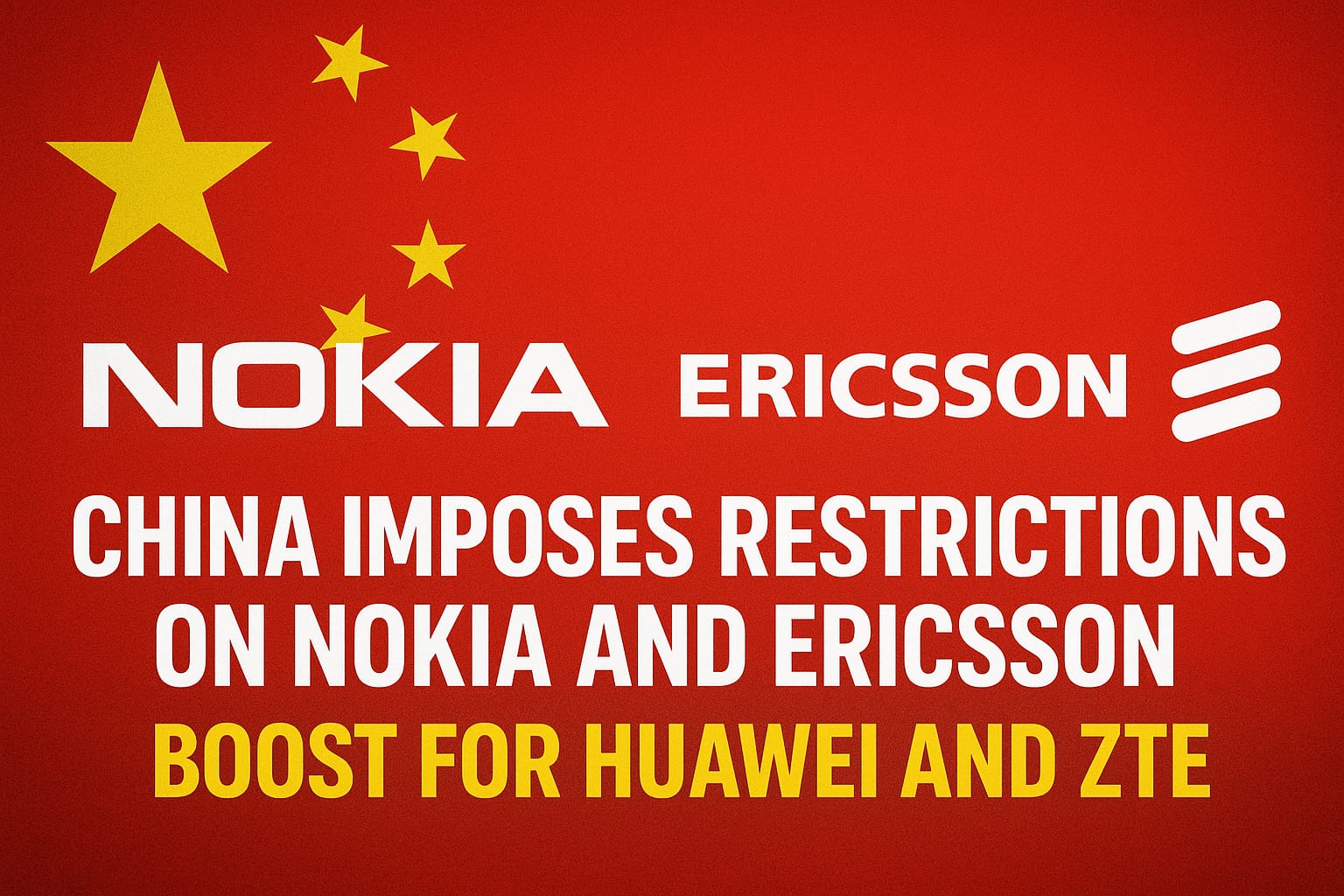China Imposes Telecom Restrictions on Nokia and Ericsson | Boost for Huawei and ZTE
China restricts Nokia and Ericsson in telecom citing security. Huawei and ZTE gain as Western firms lose market share. Latest October 2, 2025 news.
Raja Awais Ali
10/2/20252 min read


China Imposes Restrictions on Nokia and Ericsson in Telecom Sector
October 2, 2025 — China has tightened its grip on the telecom industry by imposing strict new restrictions on global giants Nokia from Finland and Ericsson from Sweden, citing national security concerns. Analysts, however, point out that the real motive is to boost domestic champions like Huawei and ZTE while reducing reliance on Western technology.
According to the new rules, any Chinese telecom operator or state agency that wishes to purchase equipment from Nokia or Ericsson must first undergo a national security review. This process is not only lengthy, often stretching three months or more, but also extremely detailed, requiring companies to disclose every component, software, and technical specification of their products. Furthermore, buyers must prove the extent of local content used in the equipment and provide evidence of research and development activities conducted within China. These conditions put foreign companies at a clear disadvantage, while domestic competitors face fewer hurdles.
The biggest winners from this move are Huawei and ZTE, which are already embedded within China’s legal and regulatory framework, meaning they are not subjected to the same scrutiny. As a result, these local companies are gaining more contracts, while Nokia and Ericsson continue to lose ground in the world’s largest telecom market. Figures show that in 2020 the two European firms held around 12 percent market share in China, but by 2024 their share had shrunk to just 4 percent. Nokia has also reported double-digit revenue losses, further underlining the financial impact of these policies.
On the international front, the European Union and other Western governments have expressed concern, arguing that China is failing to provide fair competition and instead protecting its domestic companies. This approach could create further strains in trade relations and even fuel diplomatic tensions between China and Europe. Beijing, however, insists that these measures are essential to safeguard national security and accelerate its drive for technological self-reliance.
President Xi Jinping has long emphasized the importance of reducing dependence on foreign technology and building indigenous capabilities in areas such as 5G, 6G, and next-generation communications infrastructure. By prioritizing domestic innovation, China aims to shield itself from potential external sanctions or restrictions that could disrupt its critical infrastructure.
The decision represents a double-edged sword for global telecom: while it strengthens China’s local industry and enhances the global competitiveness of Huawei and ZTE, it simultaneously sidelines foreign firms, creating immense challenges for Nokia and Ericsson. This shift highlights China’s growing determination to rewrite the rules of global telecom competition by putting local interests first, reshaping the industry’s future trajectory and intensifying the divide between Chinese and Western technology ecosystems.
Stay informed with the latest national and international news.
© 2025. All rights reserved.